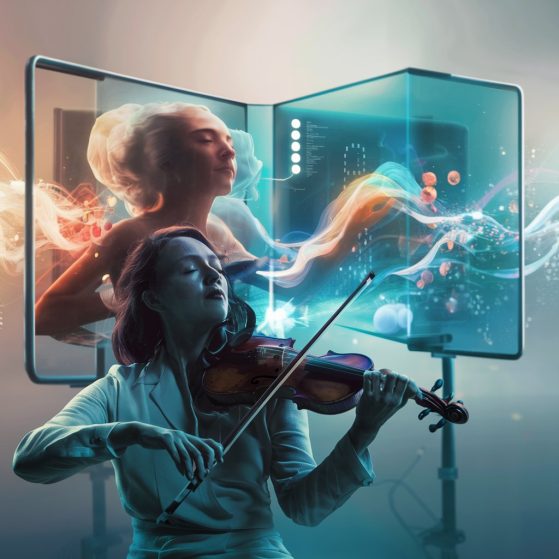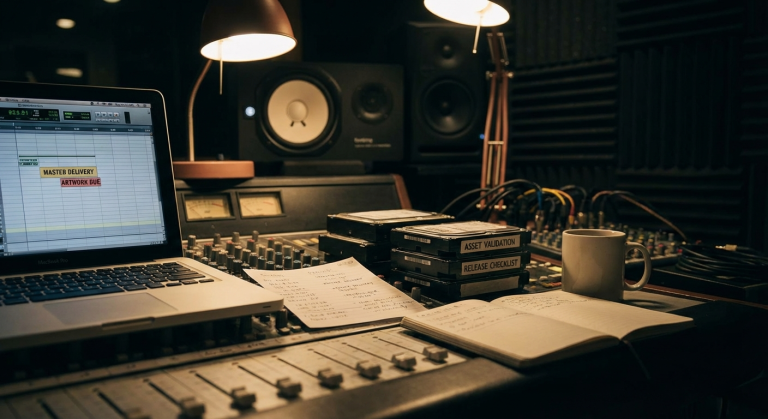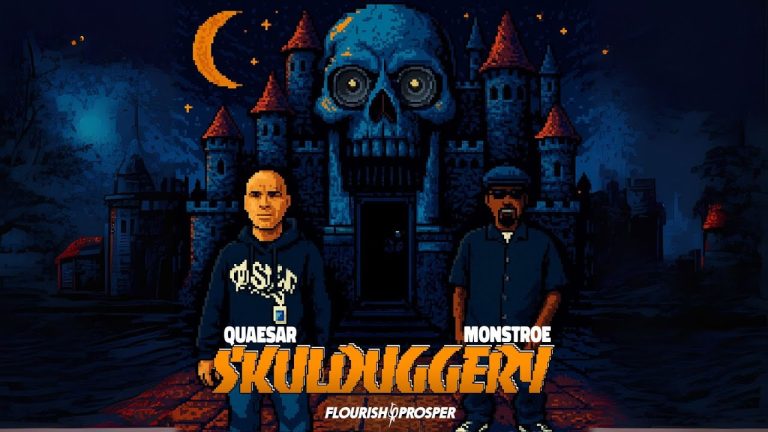The Dawn of Artificial Intelligence in Music Therapy
A New Era: AI Meets Music Therapy
The fusion of artificial intelligence (AI) and music therapy marks a pioneering stage in the realm of mental and physical healing. AI-driven applications are being designed to work alongside music therapists, enabling them to approach treatment through an innovative scope. Using machine learning algorithms, AI can analyze patterns and features in music, generate personalized playlists, or even compose therapeutic music tracks tailored for individual patients.
These developments are not only enhancing the personalization and effectivity of therapy sessions but are also providing an in-depth study of how different music elements can aid in healing and recovery.
Role of AI in Personalizing Music Therapy
Personalization is crucial to the success of music therapy, and with AI, it can be taken to an entirely new level. Intelligent software can collect and process data from patients, including their emotional states, responses to different music styles, and even physiological markers such as heart rate or skin conductance. This valuable information can then be utilized to customize a therapeutic music experience that is uniquely suited to each individual.
AI-powered software can also simulate human creativity and compose music tracks based on a patient’s preferences, mood, and required therapeutic response. This leads to unparalleled customization and further enhances the impact of music therapy.
Research and Development: AI within Music Therapy
Numerous research efforts are advancing the integration of AI into music therapy. Studies have demonstrated the potential of machine learning in deciphering musical qualities— like rhythm, pitch, and harmony— and correlating them with therapeutic outcomes. As the understanding of the relationship between musical components and human psychology deepens, AI can be tuned more accurately to create therapeutic music experiences.
In addition, AI-assisted tools are becoming invaluable in training and support for music therapists. They offer unique insights gleaned from vast datasets, supplemented by the capacity to learn and adapt over time— providing a dynamic tool that enhances the knowledge and skills of practitioners.
The advent of AI in music therapy is a tangible example of how technology can enhance traditional healthcare practices, underlining its extensive potential to transform patient care in the future.
Fundamental Principles of AI and Music Therapy

Understanding AI in Relation to Music Therapy
Artificial Intelligence (AI) has emerged as a prominent tool in diverse fields, including healthcare. In essence, AI incorporates computing systems capable of performing tasks that generally necessitate human intelligence. These tasks include, but are not limited to, recognizing speech, understanding spoken language, interpreting visual content, and making decisions. The application of AI in the realm of music therapy, therefore, involves using these capabilities to enhance therapy outcomes.
In the context of music therapy, AI can execute musically expressive performance from symbolic notation, facilitate interactive improvisation, or simulate human-like recognition and responses to musical expression. In combination with machine learning methods, AI can learn from interactions by identifying patterns and associating them with specific therapeutic responses.
Fundamentals of Music Therapy
Music Therapy, on the other hand, is an established health profession wherein therapeutic relationships are built between a qualified practitioner (the music therapist) and an individual or group. It is based on the belief that everyone has a unique response to music and that the creative process of creating music can be therapeutic.
In music therapy, individuals engage in various musical activities such as playing instruments, singing, listening to music, or moving to music, all with the aim of addressing physical, emotional, cognitive, and social needs. Music therapists devise high-quality treatment programs in line to an individual’s needs and abilities, making every therapeutic experience unique.
The Confluence of AI and Music Therapy
The unification of AI and music therapy culminates in a fascinating interplay of technology and creativity. AI can complement traditional music therapy practices by providing new avenues of discovery and development. For instance, AI models could discern patterns in the music that elicit certain emotional reactions, which might otherwise be overlooked by humans.
AI systems can also provide input for real-time music creation or modification during a therapy session, enhancing the individualization and efficiency of each session. Moreover, AI-powered music software can help individuals with limited mobility to independently create music, empowering them and aiding in their self-expression.
In summary, the fundamental principles of AI and Music Therapy involve a blending of technological capabilities and therapeutic insight, working together to enhance therapeutic outcomes, engage clients in unique ways, and redefine the boundaries of conventional music therapy.
Impacting Lives: Real-World Applications of AI in Music Therapy
AI in Enhancing Therapeutic Interventions
Artificial Intelligence (AI) is significantly transforming the realm of music therapy. AI’s capacity to analyze and process vast amounts of data is being harnessed to improve therapeutic interventions. For instance, AI algorithms can analyze the physiological responses of patients when exposed to different kinds of music. These insights enable therapists to select more precisely the type, tempo, and tone of music that can best address the patient’s therapeutic needs.
Additionally, AI has opened doors to personalized music therapy by considering individual preferences and emotional responses. Specialized algorithms can monitor a patient’s emotional state during therapy sessions. These algorithms study facial expressions, heart rate, and other indicators to gauge the impact of varying music types on the patient’s emotions. This tailored approach ensures a more impactful therapeutic experience for each patient.
Artificial Companions in Music Therapy
Another revolutionary AI application in music therapy lies in the creation of “artificial companions”. These AI-based applications provide continuous assistance, interaction, and support to patients beyond the timetable of structured therapy sessions. They offer an interactive platform where patients can express their feelings through music, stimulate cognitive function, and maintain emotional well-being.
These AI companions can be designed to learn from each interaction, adjust their responses, and aid in the long-term tracking and progression of therapy. This constant availability and interactive nature of AI companions also help foster a sense of independence and control among patients, playing a crucial role in enhancing their overall wellness.
AI Tools in Music Creation and Analysis
In the domain of music creation, AI tools play a critical role. They facilitate the creation of music pieces tailored to individuals’ therapeutic needs. Innovative AI software allows patients, even with limited musical knowledge, to create unique compositions. These AI-enabled tools not only maximize engagement but also enhance patients’ sense of accomplishment.
Furthermore, AI technologies are used to analyze music compositions created during therapy sessions. They can offer insights into the emotional landscape and subconscious aspects of the patient’s mind, which may not be easily communicated through dialogue or traditional therapeutic techniques. This detailed analysis is instrumental in charting future therapy course by providing valuable feedback about the effectiveness of ongoing treatments.
In conclusion, these real-world applications of AI in music therapy have already begun to make a profound impact in the field. Leveraging AI’s analyzing power and personalisation capabilities, we are now able to engage with patients on a deeper level, tailor treatments more effectively, and ultimately enhance clinical outcomes. AI’s confluence with music therapy indeed holds promising potential for a patient-centric future in mental health care.
Case Studies: Success Stories of AI-enabled Music Therapy

AI, Music Therapy and Stroke Recovery
One of the more compelling success stories of AI-enabled music therapy revolves around its use in aiding the recovery process of stroke patients. Utilizing machine learning algorithms, AI technology has been leveraged to compose personalized therapeutic songs aimed at stimulating specific areas of the brain.
An example of this application is the research conducted by the Montreal Neurological Institute and Hospital. Their team developed an AI-based system that identifies patterns of music that were effective in improving motor and cognitive functions. Following a series of music therapy sessions, stroke patients showed significant improvements in their reflexes and overall mobility. This testifies to the remarkable potential of AI music therapy in the realm of neurological rehabilitation.
Alleviating Symptoms of Alzheimer’s with AI Music Therapy
Success stories are not limited to stroke recovery. AI-aided music therapy has also made significant strides in treating patients with Alzheimer’s disease. The personalized nature of AI-created therapeutic songs has shown promising results in reducing anxiety and improving memory recall among Alzheimer’s patients.
A project initiated by the Boston University School of Medicine utilized AI to create customized playlists that evoke positive memories for patients. By using intelligent algorithms to analyze the individuals’ personal musical preferences and moods, the therapy demonstrated noticeable progress in the patients’ emotional well-being and cognitive function.
Transformative Impact on Autism Spectrum Disorder
Another exciting breakthrough in AI and music therapy is its effectiveness in assisting individuals with Autism Spectrum Disorder (ASD). The interactive and adaptive nature of AI-empowered music therapy provides unique therapeutic benefits for these individuals.
An innovative approach taken by the University of Oslo involved using AI to facilitate real-time interaction between the therapist and patients. AI was used to analyse and predict patient reactions, allowing the music to be adjusted on-the-fly to maximize therapeutic effect. The results revealed significant improvement in the social interaction and communication skills of the participants. These successes mark an important milestone in the application of AI in music therapy, particularly in the treatment of ASD.
The Modern Challenges at the Crossroads of AI and Music Therapy
Understanding the Intersection of AI and Music Therapy
The growing incorporation of Artificial Intelligence (AI) technologies into music therapy has introduced a host of new possibilities in terms of personalization, accessibility, and effectiveness. However, this amalgamation also brings about various challenges that necessitate further exploration and consideration.
One of the primary challenges is that AI algorithms learn from user data. While this helps customize the therapy to an individual, it also raises privacy concerns. As AI gleans insights from a person’s emotional responses to music, questions regarding data privacy, storage, and sharing become crucial. Balancing the personalization benefits of AI with the need for robust data protection mechanisms is an ongoing challenge.
The Challenge of Ensuring Therapeutic Quality
Ensuring the quality of AI-powered therapy is another pertinent issue. Traditionally, music therapists build rapport with their clients, understand their needs intricately, and use their expertise to guide therapy effectively. With AI, maintaining the same level of therapeutic quality remains a key concern. As AI lacks emotional intelligence despite its learning abilities, doubts remain about whether it can match the empathy and adaptability demonstrated by human therapists.
Challenges also arise while trying to measure the effectiveness of AI-based music therapy. Reliable methods must be developed to measure how well AI-based therapy aligns with traditional treatment outcomes. Also, the development of these measures needs to consider the unique characteristics of each patient and their individual responses to therapy.
Addressing Accessibility and Ethical Concerns
Though AI has the potential to make music therapy more accessible, there are factors that may limit this accessibility. Not everyone has access to the technology required for AI-based music therapy, creating a potential divide between those who can and cannot avail of these services.
Furthermore, ethical issues loom large. For instance, the possibility of AI replacing human therapists raises ethical concerns around employment and the changing nature of therapy. Moreover, there’s the question of whether AI should be permitted to make critical decisions about a person’s therapeutic process.
Addressing these challenges effectively will be crucial to harnessing the potential of AI in music therapy, ensuring we maximize benefits while mitigating drawbacks.
Future Prospects: The Potential of AI in Advancing Music Therapy
AI’s Role in Enhancing Music Therapeutic Techniques
Artificial Intelligence (AI) is poised to revolutionize music therapy by enhancing the therapeutic techniques currently in use. As a pioneering technology, AI can be used to create personalized music therapy sessions, tailored specifically to the needs and preferences of individual patients. Advanced algorithms can analyze a person’s mood, emotion, vital signs and biometrics to curate music playlists that optimally benefit the individual’s health and well-being.
AI can facilitate more precise real-time adjustments of musical elements such as tempo, pitch, rhythm, and volume in accordance with the client’s physiological responses, an advancement that could result in more effective therapy sessions. Moreover, machine learning algorithms can learn from each session, adopting an evolving approach to optimize treatment over time.
Improving Accessibility and Scalability of Music Therapy through AI
One of the key future prospects of AI in advancing music therapy lies in its potential to make therapy accessible to a larger demographic. With AI-powered applications, individuals in remote locations or those who simply cannot afford traditional music therapy sessions can still avail of its benefits.
AI-driven music therapy platforms can scale to reach a large number of people simultaneously, democratizing access to this form of therapy. By employing AI, we can also reduce the reliance on human therapists, making the process both more cost-effective and available round-the-clock. This is particularly beneficial for people requiring ongoing or long-term music therapy support.
Music Education and Training through AI-enabled Tools
AI also exemplifies great promise for developing more intuitive tools for music education and training, an important component for music therapy. These tools can help therapists, patients, or caregivers learn about various aspects of music therapy and its application in an engaging and interactive way.
Utilizing AI technology, these educational tools can adapt to the learner’s pace and style, providing personalized learning experiences. For example, AI can be integrated into virtual reality or augmented reality platforms to create immersive, interactive educational environments which can simulate real therapy sessions, helping learners gain hands-on experience and deepen their understanding of the practical aspects of music therapy.
In conclusion, as AI continues to mature, its potential for advancing and shaping the future of music therapy is vast. From enhancing therapeutic techniques, broadening accessibility, to revolutionizing education and training, AI holds a crucial role in the evolution of this unique confluence of technology and therapeutic healthcare.
Closing Thoughts: Are We Ready for the AI Revolution in Music Therapy?
Assessing Preparedness for the AI-Induced Shift
As we contemplate the onset of the AI revolution in music therapy, the question of our readiness merits serious consideration. Are therapists, musicians, and associated medical professionals adequately equipped to harness or even comprehend the potential power of AI in their practice?
This would involve a deep understanding of both technological and therapeutic aspects, necessitating interdisciplinary learning that may be challenging but could prove beneficial in the end. Training programs could be established to bridge this gap, allowing professionals in the field to effectively utilize the emerging technology.
Addressing Ethical Implications
Another critical angle to consider in our readiness assessment revolves around ethics, as the incorporation of AI into such an intimate field as music therapy brings with it novel ethical considerations. How can AI be integrated while preserving the human-centric essence of therapy? How do we navigate issues of data privacy?
These questions affirm the necessity of establishing regulatory guidelines that balance the utilization of AI’s prowess without compromising ethical standards. The inclusion of ethicists in the conversation from the start could help to preemptively address these concerns in a thoughtful and comprehensive manner.
Fostering Technological Accessibility
Lastly, an evaluation of our readiness for AI in music therapy wouldn’t be complete without addressing accessibility. Given the cost of technology, practicality, and considerations about who gets access to AI-driven therapy, makes this an important point of discourse.
It is imperative that the benefits are spread fairly across an economic spectrum, reaching not just high-end clinics but those who may not traditionally have access to cutting-edge technologies. This calls for conscientious efforts from stakeholders to make AI-driven music therapy available and affordable for everyone who needs it.
Looking for a trusted and knowledgeable agency to help market your music career?
Contact us at + 1 626 872-5151 or info@flourishprosper.net
Or Checkout our website at flourishprosper.net




